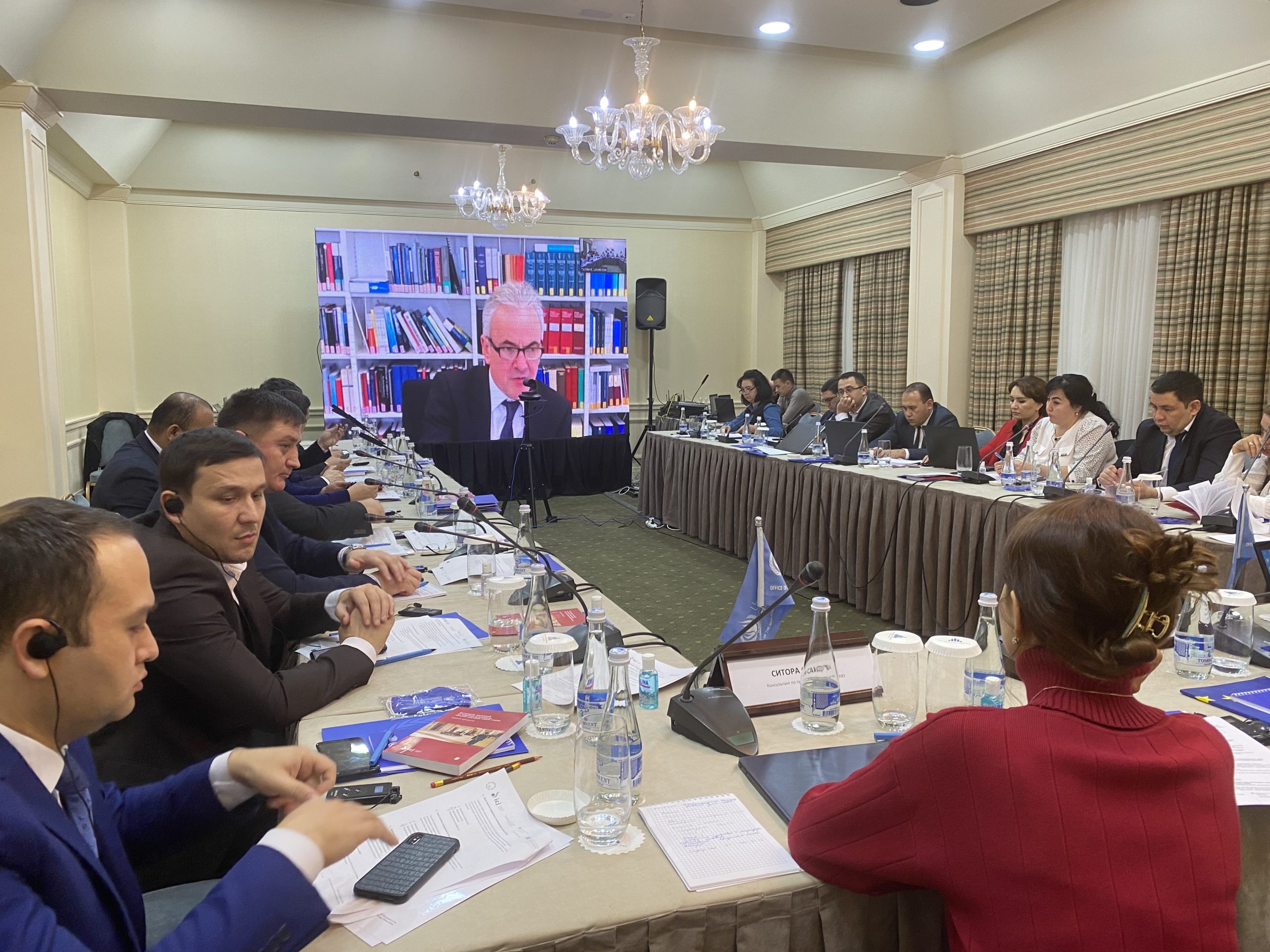Judges play a crucial role in ensuring that Uzbekistan implements its international law obligations to protect economic, social and cultural rights, a training seminar for judges in Tashkent, Uzbekistan, heard this week.
The training was held on 21-22 December by the International Commission of Jurists (ICJ) in partnership with the School of Judges of Uzbekistan, the Regional Office of the United Nations High Commissioner for Human Rights for Central Asia (ROCA) and the Nationwide movement “Yuksalish”.
At the training, members of the UN Treaty Bodies as well as ICJ and OHCHR experts provided a detailed explanation of rights as guaranteed in international human rights law, including the right to work and workplace rights; the right to the highest attainable standard of health and reproductive rights; the right to adequate housing; as well as the rights of persons with disabilities.
As Uzbekistan ratified the Convention on the Rights of Persons with Disabilities (CRPD) in May 2021, the training paid particular attention to the rights of persons with disabilities protected by the CRPD. A member of the UN CRPD explained the rights guaranteed under the Convention and led a discussion on their interpreation and application.
The event was an opportunity to familiarise judges and future judges in Uzbkeistan with the findings and recommendations of the UN Treaty Bodies in regard to ESC rights.
In its report Accessing Economic and Social Rights in Uzbekistan: An Analysis of Selected Laws and Practices, published earlier this year, the ICJ concluded that “[f]ollowing almost three decades of stagnation of the legal system and an isolationist approach to international human rights law, since 2016 Uzbekistan has undertaken a forced march to reforms. This has included the beginnings of a greater openness to international human rights procedures”.
“Recent increases in forced evictions, lack of access to justice in cases concerning the right to work, and right to health; discrimination and lack of equal protection; and shortcomings in the context of the COVID pandemic, are among the problems that show the need for renewed efforts to make protection through the justice system of these internationally-guaranteed rights a daily reality for all”, the report noted.
While an openness to human right procedures is essential for the protection of human rights and the rule of law, the ICJ report stressed that in-depth reforms of the justice system were still needed to ensure effective remedies for ESC rights violations in practice, “including through genuine independence of the judiciary and regular application of international human rights law in and by the courts”.
The event is organized in the framework of “Enhancing the Quality of Uzbekistan’s Application of international Law (EQUAL)” Project funded by the EU through the European Instrument for Democracy and Human Rights (EIDHR) and implemented by the ICJ. The event was also supported by the Swiss Embassy to Uzbekistan.




